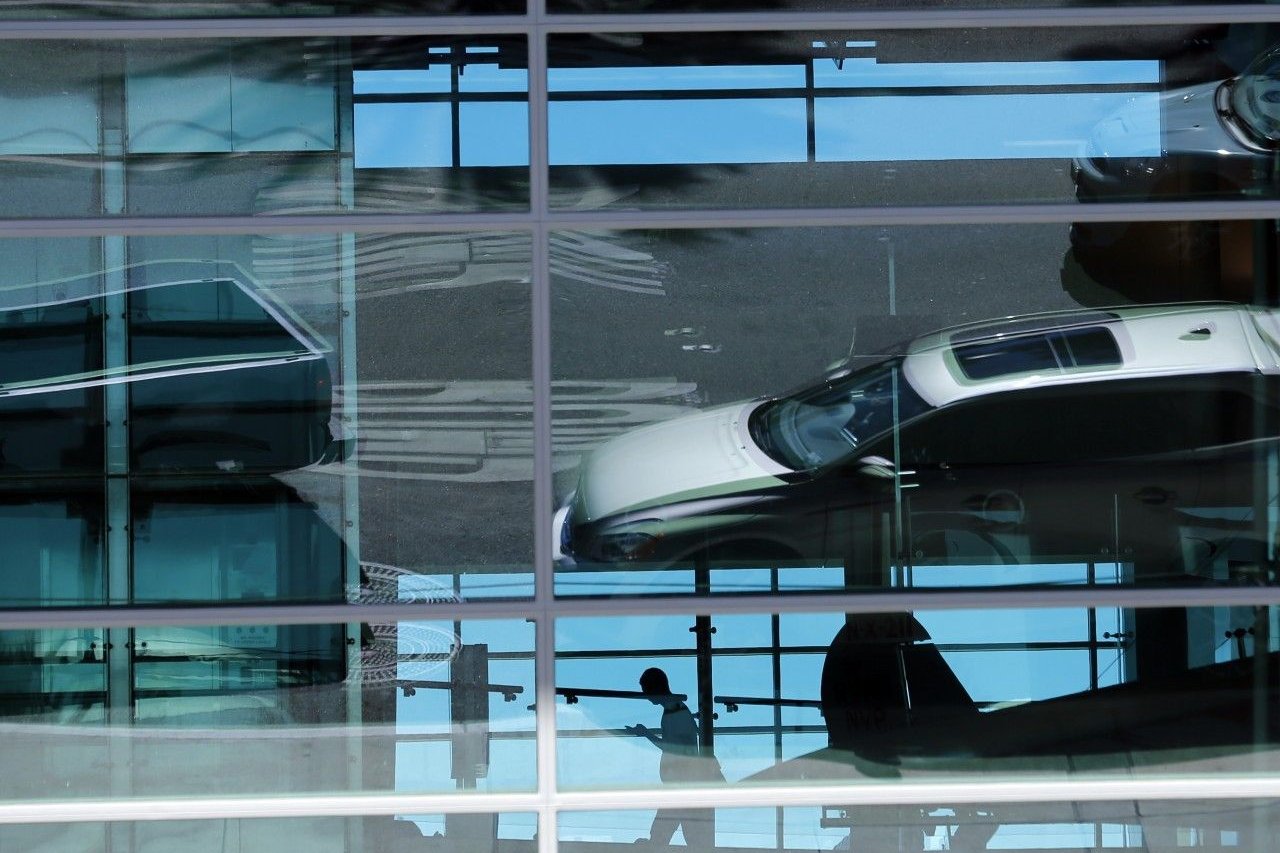People often complain that life is complicated. They're wrong. With the acceleration of information, the changing economy, the intricacies of global interconnectivity, and the massive upheaval in digital communications, life is not complicated, it's complex. This important distinction is more than mere wordplay, as explained by Duncan Green, strategic advisor for Oxfam GB and author of From Poverty to Power: "Complicated means if you study it hard, you can predict what happens when you intervene. In contrast, a complex system has so many feedback loops and uncertainties that you can never know how it will react.... "
Complexity is why every meeting you schedule is rescheduled, and why your attempts to pin down drinks with a friend slide all over the social map. Planning is less effective in the whirl of complexity, and that includes the very act of getting away from it all. In our era of vanishing jobs and crashing markets, setting a distant date on the calendar looks a lot like wishful thinking. Thankfully, from the vexation of complexity has materialized a new option to chart our turbulent world: Flash Travel.
Last-minute, mobile-app-driven hotel booking is a rising trend, reforming the landscape of the hospitality industry. Leaving laptops behind, forgoing search and compare on their home computers, more travelers are just going mobile (phone). Market research firm PhoCusWright projects that by 2014, 20 percent of hotel bookings will be made by tablet and mobile phones. Projections like this make the flash travel app a hot market, and 2013 has been their year. Pioneering U.S. brands like Hotel Tonight offer last-minute deals on hotel rooms that have attracted millions of mobile users, and nearly $50 million in venture capital. In Europe, flash travel app providers like Hot Hotels and Blink are fighting to capitalize on the lure of last-minute travel in the attraction-dense landscape of the Continent. Just around the globe, Hotel Quickly, flush with Hong Kong venture capital, is staking out South East Asia, perhaps the most mobile-friendly, smart-phone-drenched market in the world. Clearly, as the world changes, the way we travel through it is also transforming.
The popularity of Flash Travel stems from its simplicity. The typical flash travel business model is a free mobile app. Once credit card information is entered, (sometimes by snapshot, to avoid the annoyance of typing numbers) users select their city and are presented with three to five vetted hotels. A few taps, and they're booked. Whether reservations are made on the morning of the flight, or in the cab at midnight, flash travelers are relieved of the burden of searching and the pain of planning, and get a chance to embrace the fun of spontaneous travel. Services like Hotel Quickly play up that last part with whimsical touches like a "shake it" feature: Just shake your phone to be booked into the closest place available. Services often feed information based off the user's GPS location, showing the closest hotels. Most of them accept reservations made within minutes of check-in, and all of them offer some pretty serious discounts on hotel rooms. Great for the users, but this last aspect has some in the hotel industry intoning notes of impending gloom.
As flash travelers seize the deals found by living without reservations, the traditional hotel industry trembles. True, vacant rooms are the bane of the business, and dumping them off on third-party providers like Hotel Tonight is providential. But selling them off cheap might be a way of selling tomorrow, too. In the worst-case scenario, the dim future of the hotel industry is one where reservations are a fond memory. Wary of missing last-minute bargains, more travelers have stopped booking ahead. Like an army of barbarians armed with smartphones, they lay siege to hotels by waiting until the last minute to book. Brand loyalty will disappear as users chase whatever hotel offers the best bargains. Hotels will be chaos, and hospitality will suffer as reservations, the predictive indicator of service needs, becomes irrelevant. In this future, the atomized blast of flash travel ushers in a dark, wasted landscape of withering hospitality, played out on the bleak tundra of a crumbling industry model.
Tomas Laboutka, co-founder and CEO of South East Asia's Hotel Quickly, feels differently. Sitting in his crisp, tailored shirt, while sunlight shines on the sparkling skyscrapers of Bangkok just outside his office window, the dashing entrepreneur talks about a much brighter future for the hospitality industry. "In our region, the customers are leapfrogging to mobile directly-bypassing the online experience," he says. "Hotel Quickly allows hotels to manage their inventory in real time, through the most relevant channel. We are mobile only... we do not cannibalize the other channels. Also, we rotate the inventory, unlike other flash sales. Loyalty customers will not wait for the last minute if they want to book a particular hotel."
Perhaps he is more optimistic than others in his line because of his location. Bangkok is the most visited city in the world, set in the heart of what is fast becoming the most mobilized place on the planet. Because wired Internet portals like home computers are not as prevalent here, mobile phones, smartphones, and tablets have become most of the populations' primary Internet device. GfK, one of the world's largest research companies, estimates that smartphone sales in the South East Asian region are up 78 percent, year-on-year. GfK's studies found that in Singapore, Malaysia, Thailand, Indonesia, Vietnam, Cambodia, and the Philippines, $13.7 billion worth of phones were sold between July 2011 and June 2012. Spark this mobile fire in a landscape dripping with cultural attractions, fused together by cheap flights, annually lit up with expats on extended regional tours, and Hotel Quickly or some sprightly competitor might blow up in a flash of profitability.
According to a report by the American Hotel & Lodging Association and Smith Travel Research, by 2015 the hotel industry will pay $7.5 billion in commissions annually to businesses that help sell hotel rooms, up from $3.8 billion in 2010. With an increasingly mobile-driven populace travelling through the madness of an ever more complex world, large parts of that profit will be made through last-minute hotel providers. Whether Flash Travel will be a blessing or a curse to the industry is impossible to predict. Travel, like every part of our world, is a complex business.
Tomorrow remains unknown... but there is a Hotel Tonight.

























